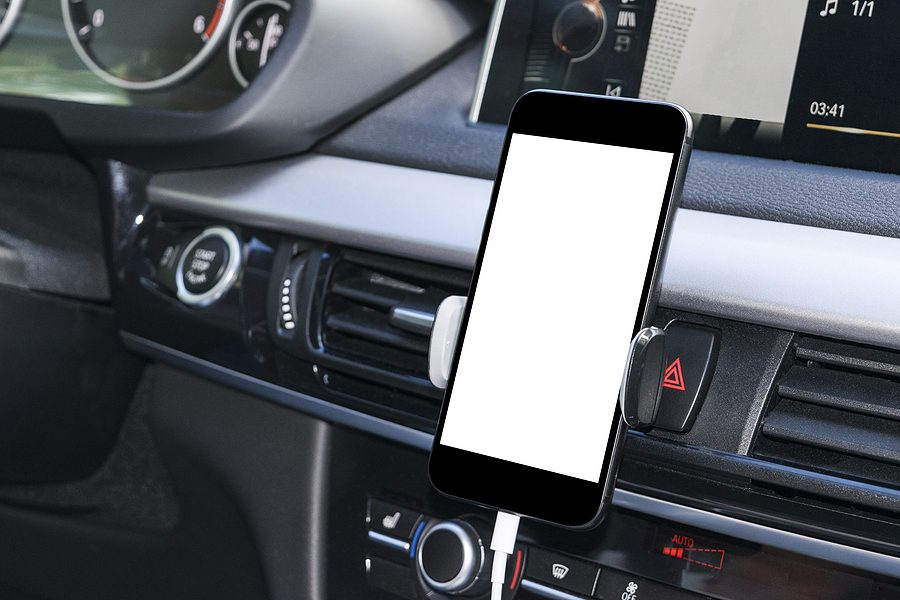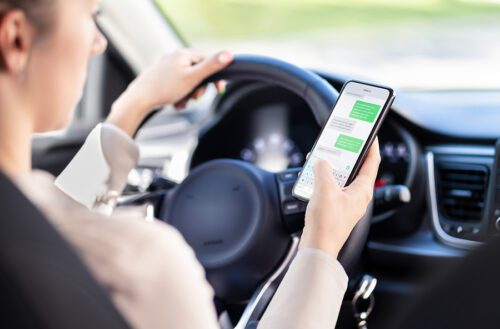
Do New Hands-Free Driving Laws Affect Car Accident Claims?
Hands-free driving laws have been popping up nationwide in recent years, and for good reason. The rise of smartphone use has steadily increased distracted driving crashes and lawmakers are looking for ways to address the issue. If you’ve been in a car accident or are concerned about how these laws might affect your legal rights afterwards, you’re not alone. The rules may seem straightforward at first—don’t hold your phone while driving—but they may also have real implications for how insurance companies and courts evaluate fault and liability. Knowing these laws and their potential impact on a car accident claim can safeguard your rights and improve your case if you’re involved in a crash.
What Hands-Free Laws Usually Prohibit
While every state may handle hands-free laws differently, most make holding or operating a phone or other electronic device illegal while driving. The federal government which regulates commercial motor vehicles through the Federal Motor Carrier Safety Regulations, has imposed similar restrictions on drivers with Commercial Drivers Licenses (CDL’s). For most drivers on the road, this means no texting, no holding a phone to your ear, and no scrolling through social media or playlists—at least not with your hands.
Drivers are generally still allowed to use voice commands, dashboard mounts (so long as they are within the driver’s reach), and Bluetooth headsets to make calls or navigate. The big requirement is that the driver cannot be physically holding the device. In some states, these laws apply to all drivers, while in others, they’re stricter for certain groups, like teens and commercial drivers.

How Violations May Affect Fault in an Accident
Breaking a hands-free law doesn’t automatically mean a driver is at fault for an accident—but it may influence how a claim is evaluated. In a personal injury case, the fault usually depends on whether the driver was negligent in causing the crash. If someone was distracted because they were holding a phone or texting, that behavior may also be considered negligent, and it may increase that driver’s culpability to a reckless standard.
If a driver was cited for violating a hands-free law during the crash, that violation might help prove that they were distracted and not paying full attention to the road. This may tip the scales in a case where liability is disputed. However, it doesn’t guarantee the other party will win the claim. Other factors—like speed, adherence to traffic signals, and witness observations — may also come into play.
In some cases, a violation may strengthen an injury claim. For example, if one driver followed the law and another was seen holding a phone and disobeying other traffic laws, that behavior may help support a claim of recklessness on top of the negligence claim. On the other hand, if both drivers were distracted or violating traffic laws, the responsibility may be shared, which could reduce or limit the claimant’s compensation.
How Insurance Companies View Hands-Free Violations
Insurance companies often use hands-free violations to argue for a smaller claim pay-out. If a driver admits to using a handheld device before the crash — or if it’s confirmed through police reports or phone records — the insurer may use that information to contend that the other driver was at fault.
This may affect how a claim is paid out. If the at-fault driver was using a phone and also violating a separate traffic law that caused the crash (i.e., the ran a stop sign while talking on a hand-held phone), it may work in your favor. On the flip side, if you were using a device – even for a moment – it may be used to argue that you were partially responsible for the crash, even though you were otherwise following the law and even though it had nothing to do with the cause of the crash (i.e., you were struck by a car running a red light).
In some states, comparative negligence rules apply, which means your compensation could be decreased depending on the percentage of fault assigned to you. In these situations, a hands-free violation may potentially reduce what you recover — or, more seriously, bar recovery altogether if your share of fault is more than 50%.
Do Hands-Free Laws Always Impact Legal Claims?
Not always. Just because a law exists doesn’t mean it plays a significant role in every case. The effect of a hands-free violation on a claim often varies based on the specific details of the crash, and whether it was a proximate cause of the crash. For example, if a driver was using a hands-free system and was still distracted — perhaps by arguing with a passenger or eating — that may still be considered negligence, even though no law was broken. On the other hand, a driver who quickly picks up their phone at a red light may technically be in violation but not be the cause of the accident.
Hands-free laws are one piece of a much larger puzzle. Before determining fault, courts and insurance companies still examine the whole picture, including driver behavior, road conditions, traffic signals, and available evidence.
Examples of How These Laws May Affect Claims
Here are a few scenarios that show how hands-free laws may come into play:
- A driver rear-ends another car at a stoplight. Surveillance footage shows the at-fault driver holding a phone at the time of impact. This may support a claim that the driver was distracted and not paying attention to traffic.
- Two drivers collide while changing lanes. One accuses the other of drifting without signaling. Phone records reveal the accused driver texted a few seconds before the crash. That information may influence how fault is assigned.
- A pedestrian is hit in a crosswalk. The driver insists they never saw the person, and no phone was found at the scene. However, the pedestrian’s attorney discovers a hands-free call was in progress during the crash. Even if legal, the conversation may still be viewed as a distraction.
Each case is different, and while hands-free violations may be a factor, they’re rarely the only ones considered.
Staying Compliant and Protecting Yourself
Following hands-free driving laws isn’t just about avoiding a ticket — it may also help minimize the likelihood of an accident and protect your legal position if you’re ever involved in an accident. Here are some ways drivers may further reduce their risk:
- Use a dashboard mount or integrated hands-free system if you need to use your phone while driving.
- Set your GPS and playlist before you start driving so you’re not fumbling with your phone on the road.
- If you receive a call or text, let it wait or safely pull over if you feel it’s urgent.
- Keep both hands on the wheel and your focus on the road, especially in heavy traffic or unfamiliar areas.
- If you’re involved in an accident, avoid blanket admissions of fault, or speculating about what happened — let the investigation determine the facts.
Taking photos of the scene and collecting witness contact information, if you’re able, can also help preserve important details of a claim.
Don’t Let a Violation Put Your Case at Risk
Hands-free laws are intended to make roads safer, but may complicate accident claims. A violation doesn’t automatically determine the outcome of a case, but it may impact how your actions are viewed. Whether you’re the victim or the one accused of distracted driving, proper legal guidance may make all the difference.
If you’ve been involved in a car accident and believe distracted driving played a role — or if you’re worried a hands-free law violation may affect your claim — Arthur Law Firm is here to help. Our team is here to guide you through your options, clarify how state laws might impact your case, and fight for the compensation you deserve. Contact us today at (419) 782-9881 for a free consultation to discuss your legal options.